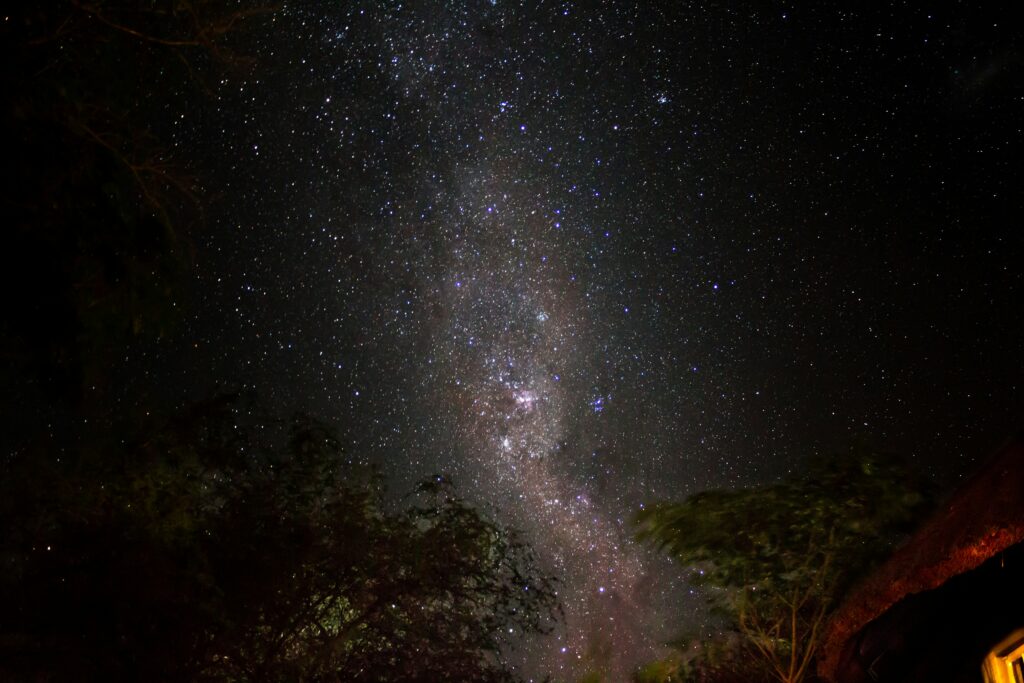As global interest in astro-tourism rises, Africa is positioning itself as a prime destination for travellers eager to explore the cosmos.
This burgeoning trend taps into the innate human fascination with the night sky, offering unique experiences ranging from stargazing to astrophotography in some of the most breathtaking landscapes on the continent.
Nearly 10.4% of global GDP and 7% of Africa’s GDP is driven by the tourism sector, according to the 2019 report by the World Travel and Tourism Council (WTTC). Focusing investment on dark sky preservation and integrating astro-tourism into the mainstream tourism industry will be a creative effort to boost GDP as a new economic diversification.
With the International Astronomical Union predicting significant growth in astro-tourism by 2025, Africa’s pristine environments provide ideal settings for celestial observation, drawing in a new market of travellers eager to combine adventure with astronomical wonders.
The Potential Value of Astro-Tourism

Astro-tourism not only capitalises on the increasing interest in space exploration and astronomy, but also represents a sustainable tourism model. With a focus on rural and remote areas, astro-tourism can stimulate local economies by promoting conservation and creating jobs. It fosters educational opportunities about the universe and our place while encouraging travellers to appreciate the natural world.
A report by the International Dark-Sky Association highlights that light pollution, prevalent in urban areas, limits the visibility of stars and celestial events. Africa, with its expansive unpolluted skies, presents a stark contrast, making it an attractive destination for astro-tourists seeking an authentic experience.
As more travellers prioritise sustainable and unique experiences, Africa’s astro-tourism potential is poised to increase significantly in 2025.
Top Astro-Tourism Destinations in Africa

Namibia
Reasons to Visit: Namibia boasts some of the darkest skies in the world, especially in the Namib Desert. The NamibRand Nature Reserve is a certified International Dark Sky Reserve, providing optimal conditions for stargazing. Visitors can enjoy views of the Milky Way, Southern Cross, and various constellations. The surreal landscapes, including the towering dunes of Sossusvlei, enhance the experience, allowing travellers to combine both stunning vistas and celestial exploration.
Source: International Dark-Sky Association
Tanzania
Reasons to Visit: The Serengeti National Park and Ngorongoro Crater offer incredible opportunities for astro-tourism. The clear skies above these wildlife-rich areas allow for spectacular views of celestial events, including meteor showers and lunar eclipses. Visitors can partake in guided stargazing safaris that combine wildlife observation with cosmic exploration.
Source: Tanzania Tourist Board
South Africa
Reasons to Visit: The Karoo region in South Africa is renowned for its clear skies and minimal light pollution. The Sutherland Observatory, one of the country’s premier astronomy hubs, hosts various stargazing events and workshops. The nearby town of Ceres also offers excellent stargazing opportunities, making it an ideal base for astro-tourism enthusiasts near to Cape Town.
Source: South African National Parks
Kenya
Reasons to Visit: Kenya’s remote areas, such as Masai Mara, provide excellent conditions for stargazing. The contrast of the dark sky against the expansive savannah landscape creates a magical atmosphere for visitors. Many lodges offer astronomy nights, allowing guests to learn about the stars and planets visible in the region.
Source: Kenya Tourism Board
Botswana
Reasons to Visit: The Okavango Delta and Kalahari Desert are prime locations for observing the night sky. The absence of urban light and the natural beauty of the environment make Botswana a top destination for astro-tourism. Visitors can enjoy guided night drives to witness the stars and nocturnal wildlife.
Source: Botswana Tourism Organisation
Egypt
Reasons to Visit: While often celebrated for its ancient history, Egypt’s deserts offer a stunning backdrop for astro-tourism. The Siwa Oasis and White Desert provide unique landscapes where travelers can engage in stargazing. The combination of history and celestial exploration can attract a diverse audience.
Source: Egypt Tourism Authority
Author: Selene Brophy
Published: 14 December 2024